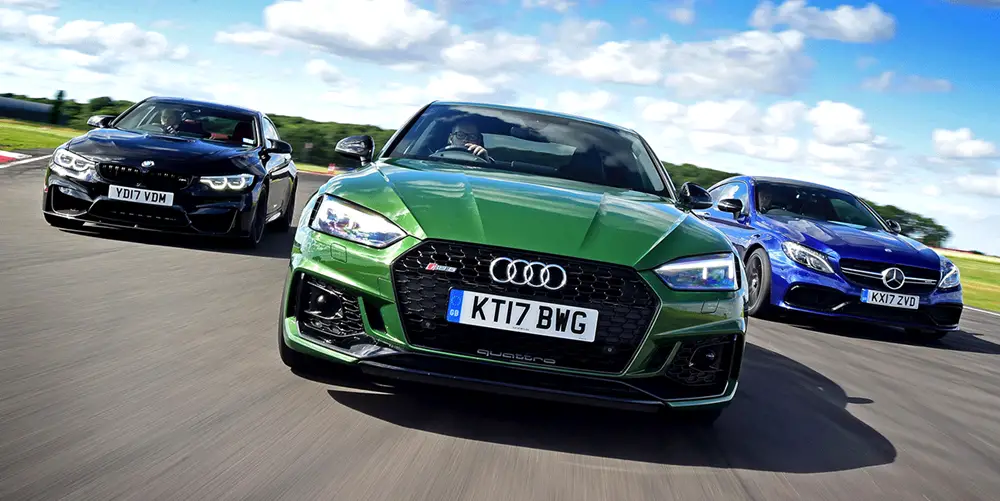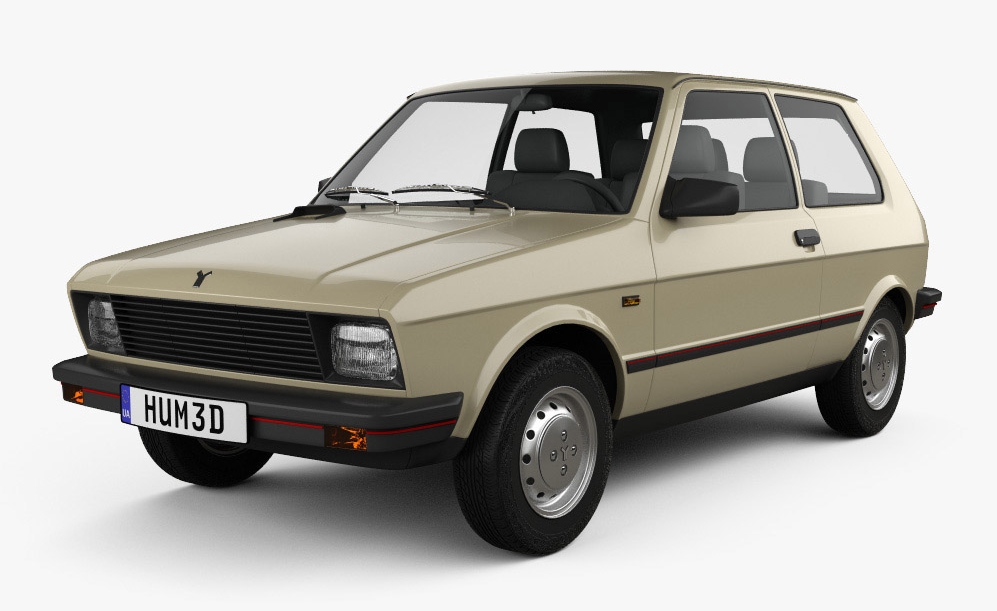Introduction: The Powerhouse of Automotive Excellence
German car manufacturers and German car brands have long been synonymous with precision engineering, innovative technology, and uncompromising quality. As a mechanic with over 15 years of experience working on European vehicles, I’ve had my hands inside the engines of countless German car brands, and let me tell you—there’s nothing quite like the meticulous engineering of a BMW straight-six or the robust build quality of a Mercedes transmission. Every time I pop the hood of a German vehicle, I still marvel at the thoughtful component layout and the premium materials used throughout.
Sure, these cars can be challenging to work on sometimes. German car manufacturers often rely on specialized tools and cutting-edge electronic systems that aren’t always DIY-friendly. But the satisfaction of hearing that finely tuned German engine purr after a successful repair makes it all worthwhile.
This table compares Audi, BMW, Mercedes-Benz, Porsche, and Volkswagen across various categories including performance, luxury, reliability, and price range:
| Feature / Brand | Audi | BMW | Mercedes-Benz | Porsche | Volkswagen |
|---|---|---|---|---|---|
| Type | Luxury, performance | Luxury, performance | Luxury, comfort | High-performance, luxury | Economy to premium |
| Popular Models | A4, Q5, A6, e-tron | 3 Series, X5, 5 Series, i4 | C-Class, E-Class, GLE, EQS | 911, Cayenne, Macan, Taycan | Golf, Passat, Tiguan, ID.4 |
| Performance | Sporty, Quattro AWD | Dynamic, RWD/AWD | Smooth, balanced | Track-ready, thrilling | Balanced, efficient |
| Luxury Features | High-tech, minimalist interiors | Driver-focused, modern tech | Plush, refined cabins | Performance-luxury hybrid | Practical, evolving design |
| Electric Options | e-tron line | i Series (i4, iX) | EQ series (EQA, EQC, EQS) | Taycan, Macan EV | ID series (ID.3, ID.4) |
| Starting Price | ~$40,000 | ~$43,000 | ~$43,000 | ~$60,000+ | ~$25,000 |
| Reliability | Above average | Average | Above average | Above average | Above average |
| Interior Quality | Sleek, modern | Sporty, premium | Elegant, upscale | Premium, driver-focused | Simple to upscale (premium trims) |
| Tech Integration | MMI, Virtual Cockpit | iDrive, Gesture Control | MBUX, Hyperscreen | PCM, telemetry | Digital Cockpit, App Connect |
| Driving Experience | Balanced sporty-comfort | Sporty, engaging | Smooth, comfort-focused | Thrilling, precise | Easy, versatile |
Also read: Top 11 Japanese Car Brands That Revolutionized Driving
The Global Impact of German Engineering
Did you know that German car manufacturers produce roughly 30% of all vehicles made in Europe and employ over 800,000 people worldwide? That’s staggering! From the luxurious sedans of Mercedes-Benz to the high-performance machines of Porsche and Audi, German car brands have earned a reputation as the gold standard in the automotive world.
Their vehicles combine technology, design, and performance like few others. Whether it’s a Volkswagen Golf built for everyday practicality or a sleek AMG-tuned Mercedes built for the Autobahn, German car manufacturers are constantly pushing the envelope. Their influence has helped shape global safety standards, fuel efficiency benchmarks, and design language across the industry.
Also read: 7 Surprising Truths About the KN Car Brand That Will Change How You See Kia
The Birth of German Automotive Innovation
The story of German car manufacturers is deeply tied to the very invention of the automobile. In 1886, Karl Benz patented the Benz Patent-Motorwagen—considered the first true car. Around the same time, Gottlieb Daimler and Wilhelm Maybach introduced their own internal combustion engine innovations, laying the foundation for what would become legendary German car brands.
Following World War II, during Germany’s Wirtschaftswunder (economic miracle), German car manufacturers helped rebuild both the national economy and the country’s global reputation. Volkswagen’s Beetle became an icon of affordability and reliability, while German car brands like Mercedes-Benz and BMW returned to prominence as premium powerhouses known for luxury and performance.
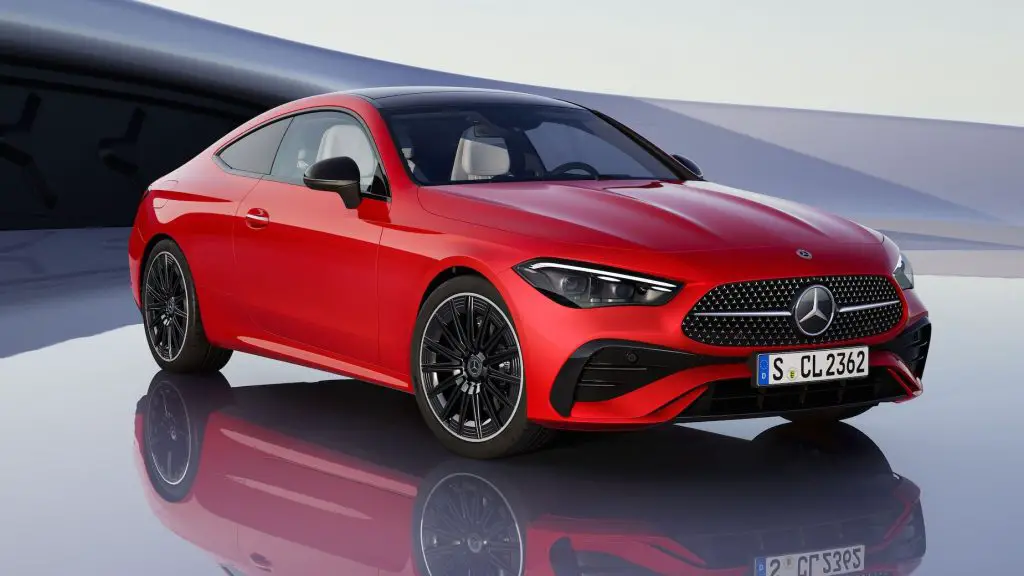
Also read: Korean Car Brand Buying Guide: Which Manufacturer Is Right for You?
Mercedes-Benz: The Inventor of the Automobile
Among German car manufacturers, Mercedes-Benz stands tall as a pioneer—not just in Germany, but globally. Widely credited as the inventor of the automobile, Mercedes-Benz is arguably the most iconic of all German car brands, with a legacy that reaches back to the 19th century.
A Legacy Built on Innovation and Luxury
Mercedes-Benz is the oldest continuously operating automotive brand in the world, with roots tracing back to Karl Benz’s Patent-Motorwagen, patented in 1886. Later, Benz’s company merged with that of Gottlieb Daimler in 1926, forming the brand we recognize today as the epitome of luxury and innovation among German car manufacturers.
Here’s what makes Mercedes-Benz a standout name among German car brands:
- Heritage: Founded by two of the original automotive pioneers—Karl Benz and Gottlieb Daimler
- Slogan: “The Best or Nothing” perfectly reflects their relentless pursuit of excellence
- Innovation: Pioneered industry-first technologies like the crumple zone, anti-lock braking systems (ABS), and the airbag
- Luxury: Famed for their serene ride quality, plush interiors, and cutting-edge comfort features
- Iconic Models:
- S-Class: The global benchmark for full-size luxury sedans
- G-Class: A timeless off-road beast with high-end appeal
- AMG GT: A head-turning, performance-driven sports coupe
Leading the Charge in Automotive Technology
Unlike many German car brands that focus solely on performance or economy, Mercedes-Benz blends technological leadership with prestige. Their MBUX (Mercedes-Benz User Experience) infotainment system uses artificial intelligence to adapt to driver preferences, offering voice-activated commands, real-time navigation, and even mood-based lighting.
Safety is another domain where Mercedes-Benz has helped set the global standard. As one of the most forward-thinking German car manufacturers, the brand has introduced many of the life-saving features we take for granted today. From collision avoidance systems to adaptive cruise control and lane-keeping assistance, Mercedes continues to redefine automotive safety and driver assistance technologies.
Why Mercedes-Benz Remains a Symbol of Prestige
Over the decades, Mercedes-Benz has remained a trusted name among German car brands, attracting everyone from heads of state to car enthusiasts. Whether you’re behind the wheel of a flagship S-Class or a more accessible C-Class, you’ll experience the blend of engineering precision and luxury craftsmanship that defines this storied brand.
In the world of German car manufacturers, Mercedes-Benz is more than a brand—it’s an institution, continuously raising the bar for what modern vehicles can achieve.

BMW: The Ultimate Driving Machine
Among German car manufacturers, few names stir a driver’s soul quite like BMW (Bayerische Motoren Werke). Founded in 1916 as an aircraft-engine maker, BMW shifted to motorcycles and, eventually, automobiles after World War I—a journey that helped cement its status as one of the most revered German car brands on the planet.
What Makes BMW Special among German Car Manufacturers?
- Driving Dynamics • Engineers obsess over perfect 50/50 weight distribution and razor-sharp handling, giving every BMW that unmistakable “on-rails” feel.
- Signature Design • From the iconic kidney grilles to the Hofmeister kink, even casual observers can spot a BMW in traffic—one of the many stylistic hallmarks separating it from other German car brands.
- Engineering Excellence • Think buttery-smooth straight-six engines, high-revving V8s, and now cutting-edge turbocharged hybrids—all delivering linear power and an intoxicating exhaust note.
- Technology Leadership • The original iDrive system centralized vehicle controls years before rival German car manufacturers followed suit; today’s versions add gesture control, over-the-air updates, and immersive digital displays.
- Performance Division • M-badged models—M3, M5, X5 M—push engineering boundaries with track-tested brakes, suspension, and aero that still feel civilized on the daily commute.
A Different Take on Luxury
While some German car manufacturers lean toward pure opulence, BMW’s luxury is wrapped in a sporting edge. Driver-oriented cockpits, firmer suspensions, and quick throttle mapping all underscore the brand’s mantra: “The Ultimate Driving Machine.” Instead of isolating occupants from the road, BMW connects them to it—turning every trip to the grocery store into a mini-grand-prix moment.
Innovation for the Future
Never content to rest on tradition, BMW is pushing electrification under its i and M Hybrid programs. Vehicles like the i4 and iX blend zero-emission drivetrains with the agility enthusiasts expect from top-tier German car brands. Meanwhile, in endurance racing and Formula E, BMW’s motorsport division continues refining battery, cooling, and lightweight materials that will filter down to showroom models.
Why BMW Still Defines Driver Engagement
- Balanced Chassis for confidence in any corner
- Adaptive Suspension that softens on rough city streets but firms up on back-road blasts
- Cutting-Edge Safety features like semi-autonomous lane keeping and predictive evasive assist
- Connected Services offering real-time traffic, remote start from a smartphone, and OTA performance tweaks
In short, BMW shows that German car manufacturers can deliver both refined luxury and raw excitement. It’s this duality—and a relentless focus on the driver—that keeps BMW at the pinnacle of sought-after German car brands worldwide.

Audi: Advancement Through Technology
Among the most innovative German car manufacturers, Audi has built its reputation on sophisticated engineering and progressive design. Their famous slogan, “Vorsprung durch Technik” (Advancement through Technology), perfectly captures the brand’s relentless focus on innovation and forward-thinking performance.
Key traits that define Audi as one of the top German car brands:
- quattro All-Wheel Drive: Audi revolutionized driving dynamics with its legendary AWD system, a defining feature among modern German car manufacturers.
- Design Language: Clean, architectural lines paired with signature LED lighting make Audi vehicles some of the most visually refined German car brands.
- Interior Quality: Benchmark-setting cabin materials, minimalist layouts, and exceptional build quality.
- Virtual Cockpit: A fully digital instrument cluster that changed how drivers interact with their vehicles.
- e-tron Lineup: Audi’s rapidly expanding family of electric cars shows how German car manufacturers are leading the charge in electrification.
Founded in 1909 by August Horch (whose name means “listen” in German—Audi is the Latin translation), the company became part of Auto Union before evolving into the high-tech luxury division of the Volkswagen Group. Today, Audi stands proudly alongside other elite German car brands, offering a unique blend of innovation, style, and performance.

Volkswagen: The People’s Car
True to its name, which means “people’s car” in German, Volkswagen has long been a pillar among German car manufacturers, focusing on practical, reliable vehicles that appeal to a wide audience. From the beloved Beetle to the cutting-edge ID series, Volkswagen has grown into one of the most influential German car brands on the planet.
What defines Volkswagen as one of the most iconic German car brands:
- Accessibility: Volkswagen consistently delivers quality engineering at approachable prices, a hallmark of successful German car manufacturers.
- Practicality: Their vehicles are known for everyday usability, clever design, and fuel efficiency.
- Global Reach: With production in over 30 countries, Volkswagen is one of the largest German car manufacturers operating on a global scale.
- MQB Platform: This modular architecture allows for flexible, cost-effective production across numerous models.
- ID Lineup: The new generation of electric vehicles, built on the MEB platform, highlights how German car brands are embracing a sustainable future.
Beyond the core Volkswagen brand, the Volkswagen Group owns a vast empire that includes Audi, Porsche, Bentley, Lamborghini, Bugatti, SEAT, and Škoda. This unmatched diversity solidifies their status not just as a leading German car brand, but as a dominant force across the global auto industry.

Porsche: Sports Car Excellence
Among all German car brands, Porsche stands apart for its relentless pursuit of performance. Since its founding in 1931, Porsche has remained one of the few German car manufacturers to focus so purely on the sports car experience. While others diversified early, Porsche perfected its formula before branching out—always keeping performance at the core.
What sets Porsche apart from other German car brands:
- 911 Legacy: The legendary rear-engine 911 has been in continuous production since 1963—an icon among German car manufacturers and sports car fans alike.
- Motorsport Pedigree: With 19 outright wins at Le Mans, Porsche is one of the most decorated German car brands in racing history.
- Engineering Philosophy: Porsche embraces an evolutionary design approach, refining what works rather than constantly reinventing.
- Driving Experience: The precision, balance, and feedback of a Porsche create a visceral connection between driver and machine.
- Exclusivity: Known for premium positioning and extensive customization options.
Even as Porsche expanded into SUVs like the Cayenne and Macan, and sedans like the Panamera and Taycan, the essence of a true sports car remains. That commitment has helped Porsche grow into one of the most successful German car manufacturers globally—without sacrificing its identity as one of the elite German car brands.
German Brands: Leading the Charge in the Electric Revolution
As someone who’s worked on cars for over 15 years, I’ve been truly impressed by how quickly German car manufacturers have embraced electrification. This shift is arguably the biggest transformation in the history of German car brands, demanding entirely new approaches to engineering, manufacturing, and software integration.
How top German car brands are electrifying the future:
- Volkswagen ID.4 – A practical EV built on the modular MEB platform, offering up to 260 miles of range. It reflects how German car manufacturers are bringing electric mobility to the mainstream.
- Audi e-tron GT – A stylish, high-performance electric sedan that shares advanced technology with the Porsche Taycan, showcasing the progressive spirit of German car brands.
- Mercedes EQS – The luxury flagship EV with up to 350 miles of range, featuring the revolutionary MBUX Hyperscreen and redefining what electric luxury can be.
- BMW iX – The most advanced electric SUV from BMW, equipped with cutting-edge driver assistance and connectivity tech—proof that German car manufacturers are shaping the future.
- Porsche Taycan – A performance-first EV that maintains the brand’s legendary driving dynamics, solidifying Porsche’s place among pioneering German car brands in the electric era.
These innovations prove that German car manufacturers aren’t just keeping up—they’re setting the pace. Their deep-rooted focus on engineering excellence, combined with massive investments in battery tech, EV platforms, and charging infrastructure, ensures that German car brands will continue to lead the global shift toward sustainable mobility.
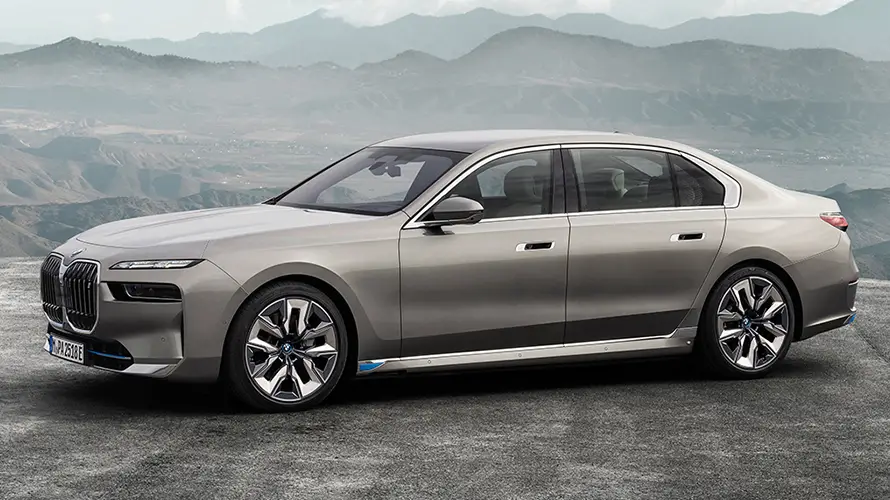
BMW: Unique Approach to Modern Challenges
BMW has developed a distinctive strategy for navigating the automotive industry’s transition period. Rather than going all-in on electrification immediately, they’ve created flexible vehicle architectures.
BMW’s approach includes:
- “Power of Choice” Strategy: Single platforms supporting multiple powertrain types
- i Brand: Dedicated sub-brand for electric and innovative vehicles like the i3 and iX
- Sustainability Initiatives: Increasing use of recycled materials and renewable energy in production
- Digital Services: Expansion into mobility services and connectivity features
- Design Evolution: Bold new design language generating discussion and differentiation
This flexible approach allows BMW to adapt quickly to regional differences in EV adoption rates while continuing to serve customers who prefer traditional powertrains. While some critics argue this strategy lacks commitment compared to dedicated EV platforms, BMW maintains it provides the most pragmatic path through uncertain market transitions.
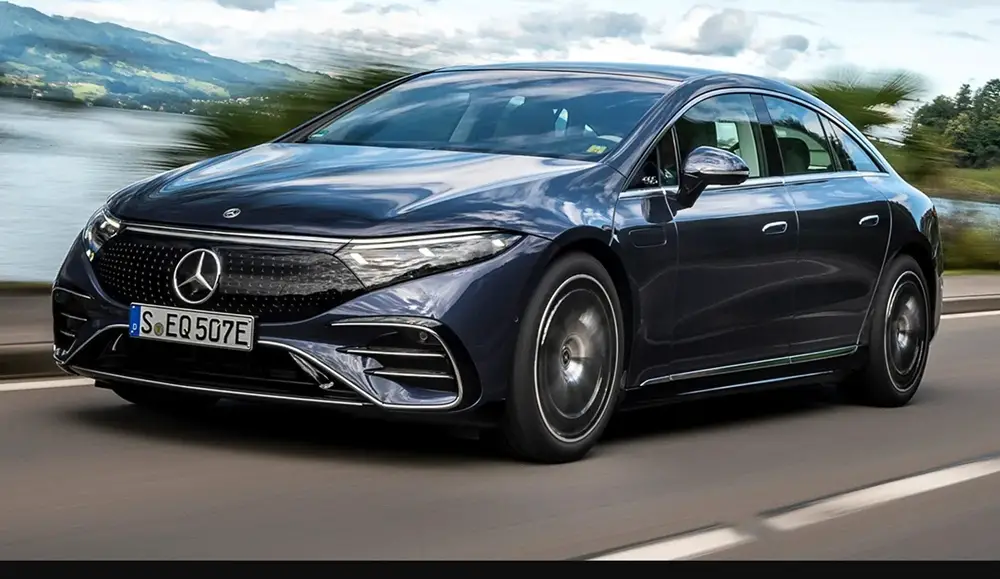
Mercedes-Benz: Redefining Luxury for the Electric Age
Mercedes-Benz has taken a comprehensive approach to electric vehicle development with its EQ sub-brand, which spans from compact models to flagship luxury sedans.
Mercedes’ electrification strategy:
- Dedicated EVA Platform: Purpose-built architecture for electric luxury vehicles
- MBUX Hyperscreen: Revolutionary 56-inch curved display spanning the entire dashboard
- Commitment to Go All-Electric: Plans to offer electric versions across their entire lineup by 2025
- EQS Flagship: Setting new standards for electric vehicle aerodynamics with 0.20 drag coefficient
- Vertical Integration: Developing proprietary electric motors and battery technology
Mercedes-Benz’s approach emphasizes maintaining their traditional luxury values—comfort, refinement, and technological sophistication—while embracing the unique advantages of electric propulsion. Their EQS sedan demonstrates how the absence of a traditional engine can create new opportunities for interior space and design.
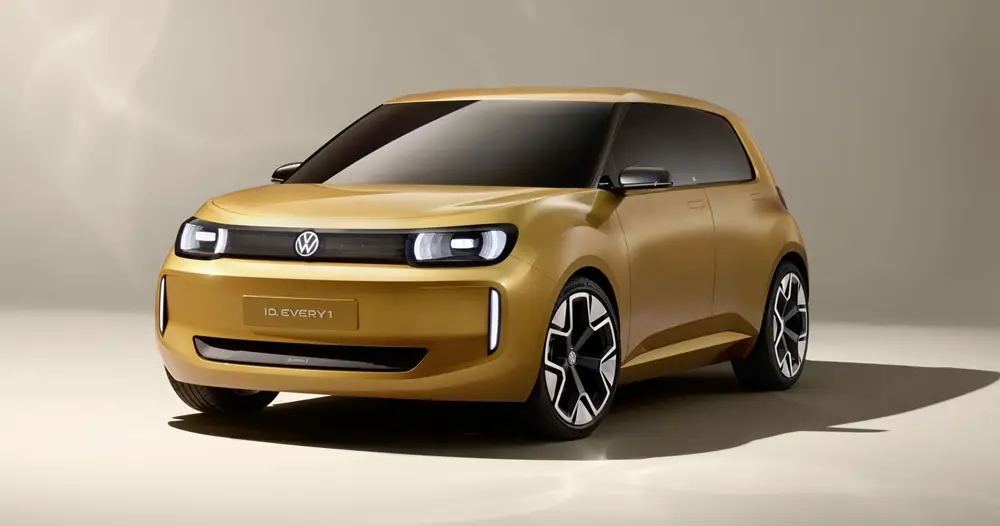
Volkswagen Group’s Massive EV Investment
The Volkswagen Group has made perhaps the most aggressive commitment to electrification among German manufacturers, pledging over €30 billion to EV development.
Key elements of Volkswagen’s strategy:
- MEB Platform: Scalable architecture dedicated to electric vehicles across multiple brands
- ID Family: Range of EVs from compact cars to vans, all built on the MEB platform
- IONITY Partnership: High-power charging network across European highways
- Software Organization: New division focused on creating proprietary software architecture
- Carbon Neutrality Goal: Commitment to become climate neutral by 2050
Volkswagen’s scale gives it significant advantages in the transition to electric vehicles, allowing massive investments in dedicated platforms and battery production. Their ID.3 and ID.4 models represent just the beginning of a comprehensive electric offensive across all their brands, from Škoda to Audi and Porsche.
German Automotive Brands Design Philosophy
German car design typically embraces clarity, purpose, and restraint—values that reflect broader German cultural principles of functionality and precision. This approach has created timeless designs that age gracefully rather than following short-lived trends.
Distinctive elements of German automotive design:
- Form Follows Function: Prioritizing aerodynamics and ergonomics over styling flourishes
- Material Authenticity: Using genuine materials rather than imitations
- Design Consistency: Evolutionary rather than revolutionary styling changes
- Attention to Detail: Precise panel gaps, thoughtful ergonomics, and tactile controls
- Brand-Specific Design Languages: Each manufacturer maintains distinctive visual identities
This design philosophy extends to interiors, where logical layout, high-quality materials, and exceptional build quality create environments that prioritize user experience over flashy gimmicks. Even as digital interfaces become more prominent, German manufacturers typically maintain physical controls for primary functions, recognizing their superiority for driver interaction.
The Future Challenges for German Car Manufacturers
The automotive industry is undergoing its most profound transformation since its inception, presenting significant challenges to established manufacturers.
Critical challenges facing German car manufacturers:
- Software Development: Transitioning from hardware-focused to software-defined vehicles
- New Competitors: Competing with tech-focused EV startups unburdened by legacy costs
- Changing Ownership Models: Adapting to subscription services and shared mobility
- Regulatory Pressures: Meeting increasingly stringent emissions regulations worldwide
- Supply Chain Security: Ensuring access to critical raw materials for battery production
How German manufacturers address these challenges will determine their position in the automotive landscape of the future. Their traditional strengths—engineering excellence, manufacturing quality, and brand prestige—remain valuable assets, but successful adaptation requires embracing new capabilities and mindsets.
Conclusion: The Enduring Legacy of German Automotive Excellence
The story of German car manufacturers is one of innovation, persistence, and excellence spanning over a century. From pioneering the automobile itself to leading the charge into an electrified, autonomous future, German brands have consistently defined what’s possible in automotive engineering and design. Their influence extends far beyond Germany’s borders, setting global standards for performance, safety, and luxury.
As the automotive industry undergoes its most significant transformation since its inception, German car manufacturers find themselves at a pivotal moment. The strengths that brought them success—engineering excellence, quality manufacturing, and technical innovation—remain relevant, but adaptation is essential. The shift toward software-defined vehicles, new ownership models, and carbon-neutral operations presents both challenges and opportunities.
What remains constant is the philosophy that has guided these companies from the beginning: an unwavering commitment to progress through technology and craftsmanship. As long as German car manufacturers maintain this core principle while embracing change, their prominent position in the automotive world seems secure for generations to come

